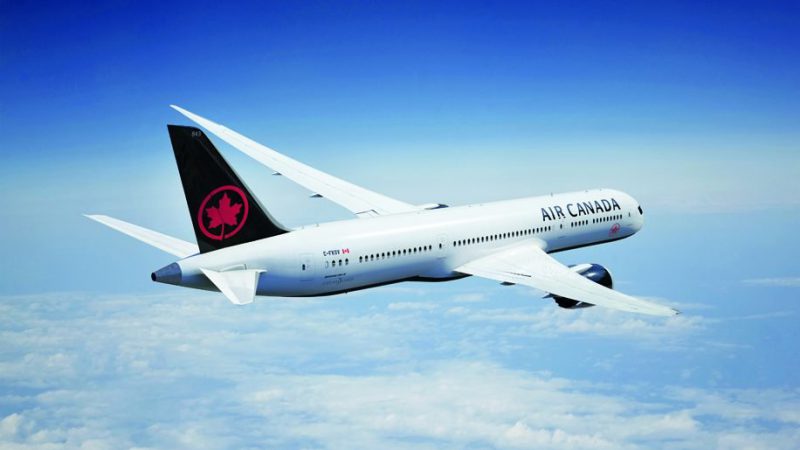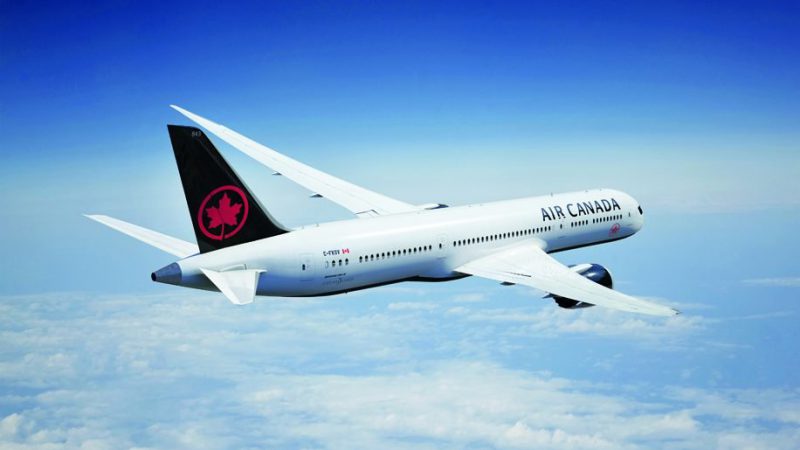Air Canada Joins Airline Movement to Green the Skies
An ambitious plan targets a 2050 net zero emissions goal
March 18, 2021

Air Canada is joining the fast club of airlines that are giving their long-term commitment to advancing climate change sustainability. The airline announced this week that it has set ambitious climate targets to realize a net-zero greenhouse gas emissions (GHG) goal throughout its global operations by 2050.
To reach this, Air Canada has set absolute midterm emission-reduction targets by 2030 in its air and ground operations compared to its 2019 baseline, and has committed to investing $50 Million in Sustainable Aviation Fuel (SAF), and carbon reductions and removals. The Absolute 2030 midterm GHG reduction targets will ensure meaningful progress towards the airline’s overall net zero goal while the craft, technology and energy sectors are transitioning to low carbon alternatives.
Air Canada’s key carbon reduction pillars include:
Fleet and operations. Air Canada will continue deploying its newly modernized and energy efficient Airbus A220 and Boeing 737 MAX narrow-body fleets that are more efficient and expected to average approximately 20 per cent less fuel consumption per seat and emit approximately 20 percent less CO2 and 50 percent less nitrogen oxides than aircraft they replace. It will continue to integrate climate factors in route and fleet planning, phase out carbon-intensive ground equipment, and further advance electric vehicles while seeking other electrification opportunities.
Innovation. The airline will further evaluate the viability, safety and performance of new electric, hydrogen or hybrid operational technologies, and other innovations such as short-haul transportation opportunities and electric drones to complement and support its global business network.
To further its work on sustainable aviation fuels, Air Canada is investing $50 Million in SAF and other low carbon aviation fuel (LCAF) development while evaluating the practical applications of renewable energy sources, such as biogas and renewable electricity, and energy transition measures.
Carbon Reductions and Removals. Air Canada will be exploring carbon negative emission technologies and other direct emission reduction and removal strategies in addition to further developing its carbon offset strategy for CORSIA compliance, customer offerings and more.
Air Canada currently reports its carbon footprint and sustainability efforts through the CDP and will also be reporting through the Task Force on Climate-related Financial Disclosures (“TCFD”) framework as of 2022.
Through myriad strategies and efforts, Air Canada notes that since 1990, it has improved fuel efficiency by 43 percent. From 2016 to 2019, the airline reduced more than 135,000 tons of GHG from its air operations.
Those initiatives have included:
- Participating in eight biofuel flights with ongoing, active support for the development of SAF in Canada including working with the Government of Canada on policy development to support a Canadian-based sustainable aviation fuel industry.
- Leading efforts on Canada’s Biojet Supply Chain Initiative (CBSCI), a project to identify and solve supply logistic barriers that arise when aviation biofuels are introduced at major Canadian airports.
- Contributing to the Civil Aviation Alternate Fuel Contrail and Emissions Research project (CAAFCER) to test the environmental benefits of biofuel use on contrail formation, benefiting all aviation stakeholders and climate science researchers.
- Implementing a technologically advanced livery paint and painting process resulting in significant weight and fuel savings, with no chrome, lead or other heavy metals and is expected to last longer when compared to standard paint.
In 2020 and 2019, Air Canada was recognized by Vancouver Airport Authority as the YVR Green Excellence winner for green initiatives on Sea Island including water and energy conservation, waste minimization and the Richmond Ocean Shoreline Cleanup. In 2018 it was named Eco-Airline of the Year by Air Transport World for its leadership in fuel efficiency and innovative sustainability initiatives through a $10 Billion investment in fleet modernization as well as fuel efficiency programs and route improvements.




